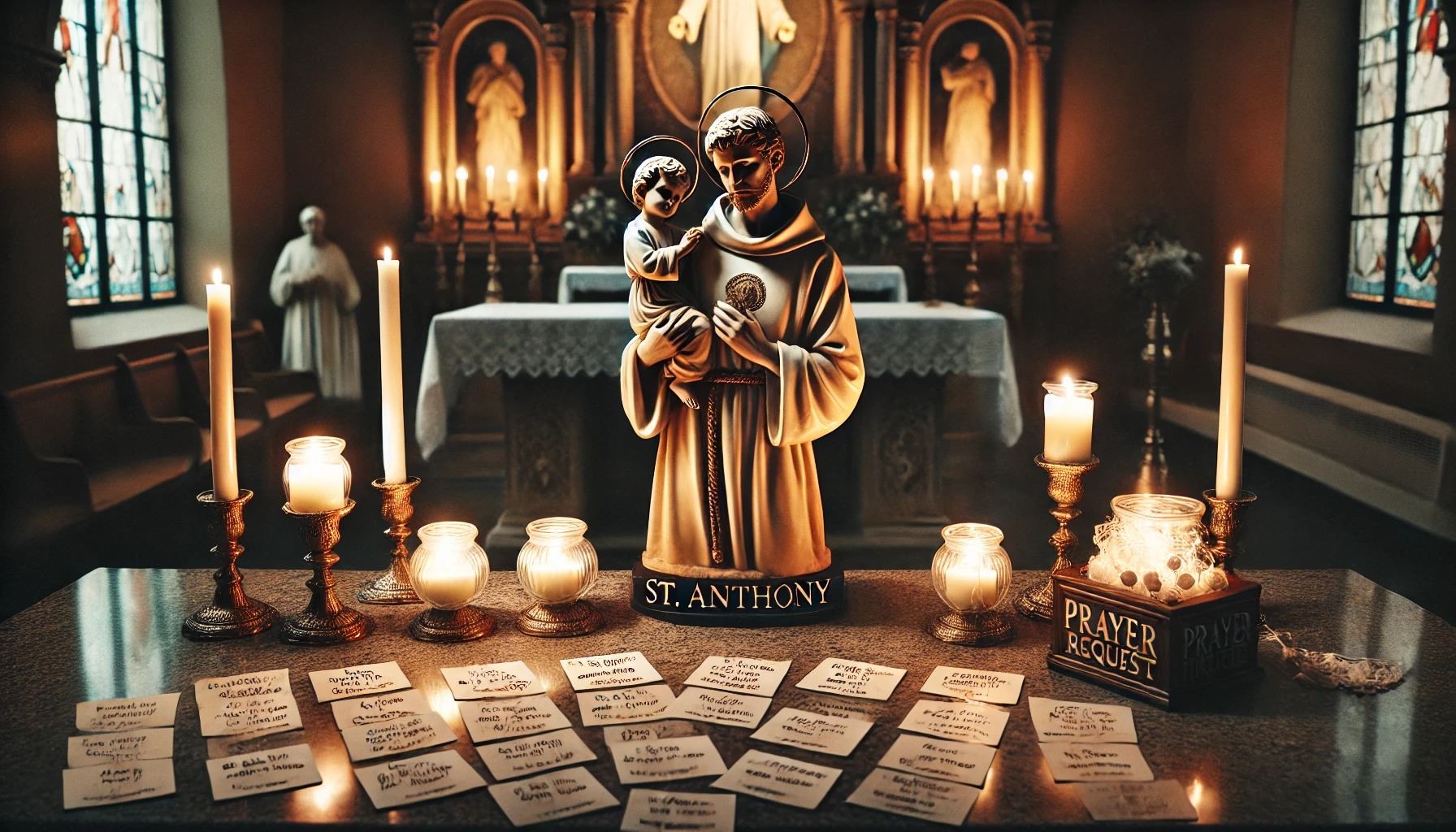Home>Theology and Spirituality>How To Formally Request A Baptism


Theology and Spirituality
How To Formally Request A Baptism
Published: February 26, 2024
Jason DeRose, Managing Editor at Christian.net, uses his expertise in religion and journalism to deepen understanding of faith's societal impacts. His editorial leadership, coupled with a strong academic background, enriches the platform’s diverse content, earning him recognition in both journalism and religious circles.
Learn how to formally request a baptism and understand the significance of this sacrament. Discover the process and requirements for a baptism ceremony. Explore theology and spirituality.
(Many of the links in this article redirect to a specific reviewed product. Your purchase of these products through affiliate links helps to generate commission for Christian.net, at no extra cost. Learn more)
Table of Contents
Understanding the Baptism Process
Baptism is a significant sacrament in many Christian traditions, symbolizing the cleansing of sins and the initiation into the faith community. It is a rite of passage that holds deep spiritual and religious significance for believers. The process of baptism varies among different denominations, but the fundamental principles remain the same. Understanding the baptism process is essential for individuals and families who are seeking to formally request a baptism for themselves or their children. Here are the key aspects to consider when delving into the baptism process:
-
Symbolism and Meaning: Baptism is a symbolic act that signifies the washing away of sin and the beginning of a new life in Christ. It is a public declaration of one's faith and a commitment to live according to the teachings of Jesus Christ. Understanding the symbolic significance of baptism helps individuals and families appreciate the spiritual depth of the sacrament.
-
Types of Baptism: There are different forms of baptism practiced within the Christian tradition, including infant baptism, believer's baptism, and immersion baptism. Each type has its own theological significance and ceremonial practices. Understanding the distinctions between these forms of baptism is crucial when considering the baptism process.
-
Role of the Church: Baptism is typically administered within the context of a church or religious institution. Understanding the role of the church in the baptism process is essential. Different denominations may have specific requirements or guidelines for baptism, and it is important to be aware of these when seeking to formally request a baptism.
-
Preparation and Commitment: The baptism process often involves a period of preparation and instruction, especially for adult candidates. Understanding the commitment involved in the baptism process, including the spiritual preparation and the vows taken during the ceremony, is vital for those seeking to undergo this sacrament.
-
Community and Fellowship: Baptism is not just an individual act, but a communal celebration within the faith community. Understanding the significance of community and fellowship in the baptism process emphasizes the importance of being connected to a supportive spiritual family.
By understanding the baptism process, individuals and families can approach the formal request for baptism with a deeper appreciation for its spiritual and religious significance.
Read more: 20 Prayer Request Examples
Choosing the Right Church or Religious Institution
-
Denominational Affiliation: Consider the denominational affiliation that aligns with your beliefs and values. Different Christian denominations may have distinct theological perspectives and practices regarding baptism. Whether it's Catholic, Protestant, Orthodox, or other denominations, choosing a church that resonates with your faith tradition is crucial.
-
Doctrinal Beliefs: Evaluate the doctrinal beliefs and teachings of the church or religious institution. Understanding their stance on baptism, the significance they attribute to the sacrament, and their theological interpretations can help in making an informed decision.
-
Community and Support: Assess the sense of community and support offered by the church. A welcoming and supportive congregation can enhance the baptism experience, especially for families seeking to baptize their children. Being part of a nurturing spiritual community can enrich the journey of faith.
-
Accessibility and Convenience: Consider the location and accessibility of the church or religious institution. Choosing a place of worship that is easily accessible can facilitate regular participation in the church's activities and community life, fostering a deeper connection with the faith community.
-
Clergy and Leadership: Reflect on the clergy and leadership of the church. The guidance and support provided by the clergy during the baptism process can significantly impact the experience. Understanding the role of the clergy in administering the sacrament and their approach to pastoral care is essential.
-
Cultural and Liturgical Practices: Take into account the cultural and liturgical practices of the church. Different traditions may have specific rituals and customs associated with baptism. Understanding and appreciating these practices can contribute to a meaningful and culturally enriching baptism experience.
-
Personal Connection: Lastly, consider the personal connection and spiritual resonance you feel with the church or religious institution. A sense of belonging and spiritual alignment with the community can make the process of requesting baptism more fulfilling and meaningful.
Choosing the right church or religious institution is a pivotal step in the baptism journey, as it sets the foundation for a spiritually enriching and supportive environment for the sacrament.
Contacting the Church or Religious Institution
-
Research and Inquire: Begin by researching the contact information of the church or religious institution you are considering for the baptism. This can typically be found on their official website, social media pages, or through local directories. If you have specific questions about their baptism process or requirements, don't hesitate to reach out and inquire.
-
Phone Call: A direct phone call to the church office can be an effective way to initiate contact. Introduce yourself courteously and express your interest in scheduling a baptism. Be prepared to ask any questions you may have regarding the process, documentation, or any prerequisites for baptism.
-
Email Correspondence: Sending an email to the church's designated email address can also be a formal and convenient method of contacting them. In your email, clearly state your intention to request a baptism and inquire about the necessary steps to proceed. Ensure that your contact information is included for ease of communication.
-
In-Person Visit: If feasible, consider visiting the church in person. This allows you to meet with the church staff or clergy face-to-face, providing a more personal and direct approach to initiating the baptism request. It also offers the opportunity to familiarize yourself with the church environment and community.
-
Online Forms: Some churches may have online forms specifically designed for baptism requests. These forms often require basic information such as your name, contact details, and the preferred date for the baptism. Filling out these forms accurately and thoroughly can streamline the initial contact process.
-
Social Media Messaging: Many churches maintain active social media accounts. Sending a direct message through platforms like Facebook or Instagram can be a casual yet effective way to initiate contact. However, it's important to follow up with more formal communication to ensure that the baptism request is properly documented and scheduled.
-
Follow-Up Communication: Regardless of the initial method used to contact the church, it's essential to follow up on your request. If you haven't received a response within a reasonable timeframe, consider reaching out again through a different communication channel or asking for confirmation of receipt.
Initiating contact with the church or religious institution is the crucial first step in formally requesting a baptism. Clear and respectful communication sets the tone for a positive and collaborative journey towards the sacrament of baptism.
Completing the Baptism Request Form
When it comes to formally requesting a baptism, completing the baptism request form is a pivotal step in the process. This form serves as an official document that communicates your desire to have a baptism performed within a specific church or religious institution. Here's a detailed look at the process of completing the baptism request form:
-
Obtaining the Form: The baptism request form can typically be obtained from the church office, either in person or through their official website. In some cases, the form may be available for download, allowing you to fill it out electronically or print it for manual completion.
-
Personal Information: The form will require you to provide personal information such as your full name, contact details, address, and any additional details requested by the church. For infant baptisms, the parents or guardians' information may also be required.
-
Candidate Information: If the baptism is for an individual who is of age and able to provide their own information, the form will include sections for the candidate's details, including their date of birth, previous religious affiliations (if any), and their own contact information.
-
Family Details (For Infant Baptisms): In the case of infant baptisms, the parents or guardians will need to furnish their details on the form. This may include their names, contact information, and any specific requirements related to the baptism ceremony.
-
Preferred Date and Ceremony Details: The form will likely include a section where you can indicate your preferred date for the baptism ceremony. Additionally, there may be options or fields to specify any particular requests or details regarding the ceremony, such as the choice of godparents or special religious customs to be observed.
-
Acknowledgment of Commitment: Some baptism request forms include a section where the individual or parents/guardians are required to acknowledge their commitment to raising the baptized individual in accordance with the teachings and values of the church.
-
Signature and Submission: Once all the necessary information has been provided, the form will typically require the signature of the individual or the parents/guardians, indicating their consent and agreement with the details outlined in the form. After completion, the form can be submitted to the church office through the designated channels, as specified by the church.
-
Confirmation and Follow-Up: After submitting the baptism request form, it is advisable to follow up with the church to ensure that the form has been received and processed. This can help in confirming the details of the baptism ceremony and addressing any additional requirements or queries.
Completing the baptism request form is a formal and essential step that signifies your intention to have a baptism performed within a specific church or religious institution. It is important to provide accurate and complete information on the form to facilitate the smooth processing of your baptism request.
Scheduling the Baptism Ceremony
Scheduling the baptism ceremony is the culmination of the formal request process, marking the anticipated moment when the sacrament of baptism will be administered within the chosen church or religious institution. This phase involves coordinating with the church authorities, finalizing the logistical details, and preparing for the significant event. Here's a comprehensive guide to the essential steps involved in scheduling the baptism ceremony:
-
Consultation with Church Authorities: Initiate the scheduling process by consulting with the church authorities or designated personnel responsible for coordinating baptism ceremonies. This may involve arranging a meeting or discussion to finalize the date and time for the ceremony. It is important to be flexible and considerate of the church's schedule and availability.
-
Selection of Ceremony Date: Work closely with the church to select a suitable date for the baptism ceremony. Consider factors such as the availability of the clergy, the church's liturgical calendar, and any special events or celebrations within the church community. The chosen date should align with the preferences of the individual or family seeking baptism.
-
Confirmation of Ceremony Details: Once the date is agreed upon, it is essential to confirm the specific details of the baptism ceremony. This includes clarifying the order of the service, any requirements for participants, and any additional elements such as readings, prayers, or musical selections that may be incorporated into the ceremony.
-
Preparation and Rehearsal: Depending on the church's practices, there may be a need for preparation and rehearsal before the actual ceremony. This is particularly relevant for individuals or families who will play specific roles in the baptism, such as godparents, sponsors, or participants in any ceremonial rituals. It is important to adhere to any preparatory requirements set forth by the church.
-
Logistical Arrangements: Attend to logistical arrangements related to the baptism ceremony, such as reserving the church space, coordinating with the clergy, and ensuring that any necessary ceremonial items or symbols are prepared. This may also involve communicating with the church staff regarding any specific needs or accommodations for the ceremony.
-
Communication with Participants: If there are individuals playing roles in the baptism ceremony, such as godparents or sponsors, it is crucial to communicate with them regarding the finalized date, time, and expectations for their participation. Clear communication ensures that all participants are prepared and available for the ceremony.
-
Documentation and Administrative Requirements: Address any documentation or administrative requirements stipulated by the church for the baptism ceremony. This may include submitting necessary forms, providing proof of eligibility for baptism, and fulfilling any prerequisites as outlined by the church's policies.
-
Anticipation and Reflection: As the scheduled date of the baptism ceremony approaches, take time for anticipation and reflection. This may involve personal or familial spiritual preparation, prayer, and contemplation on the significance of the sacrament of baptism. It is an opportunity to embrace the forthcoming milestone with reverence and gratitude.
Scheduling the baptism ceremony is a pivotal phase in the formal request process, signifying the imminent realization of the sacrament within the chosen church or religious institution. By engaging in thoughtful coordination and preparation, individuals and families can ensure that the ceremony unfolds with reverence, meaning, and spiritual significance.















